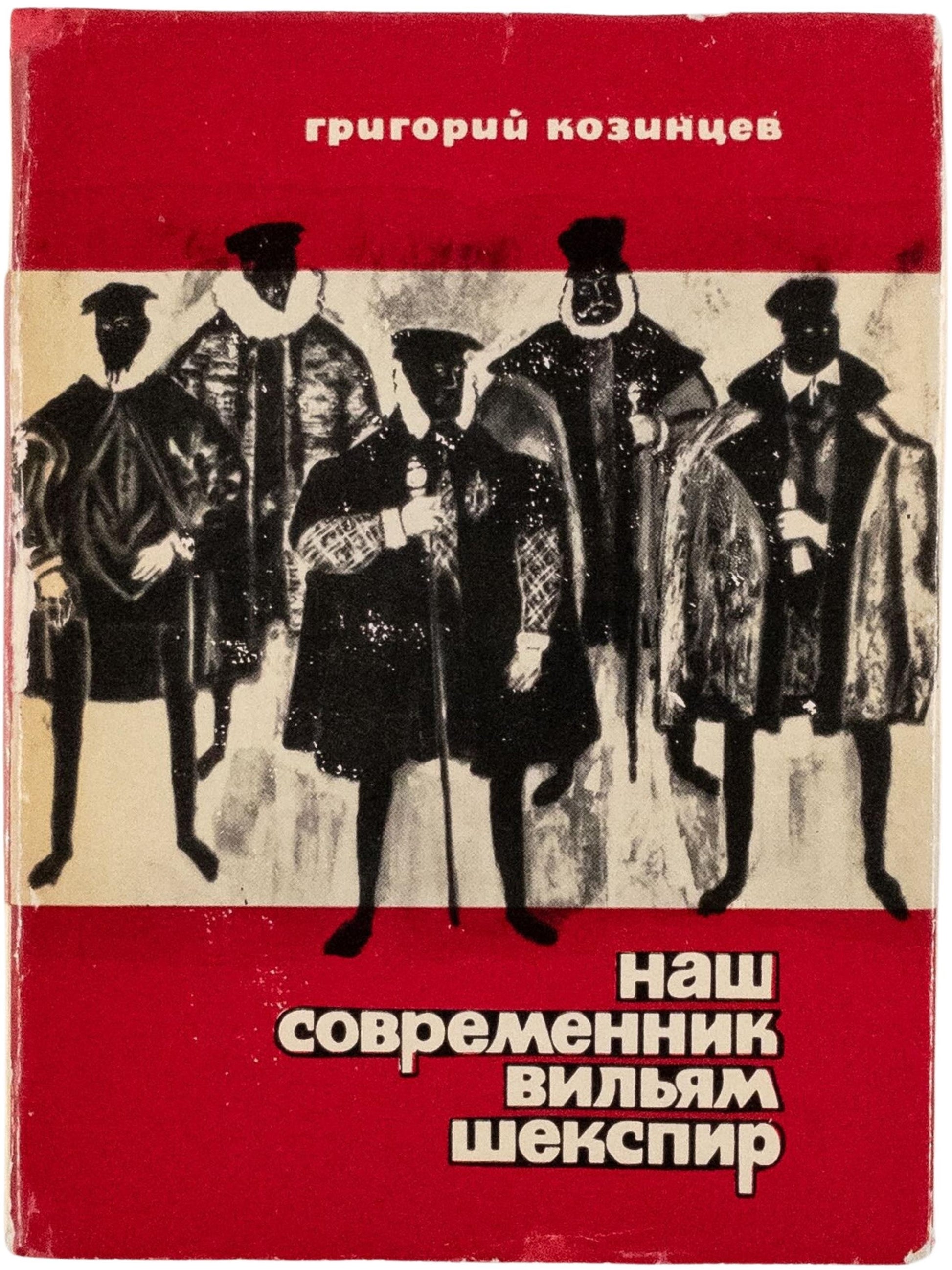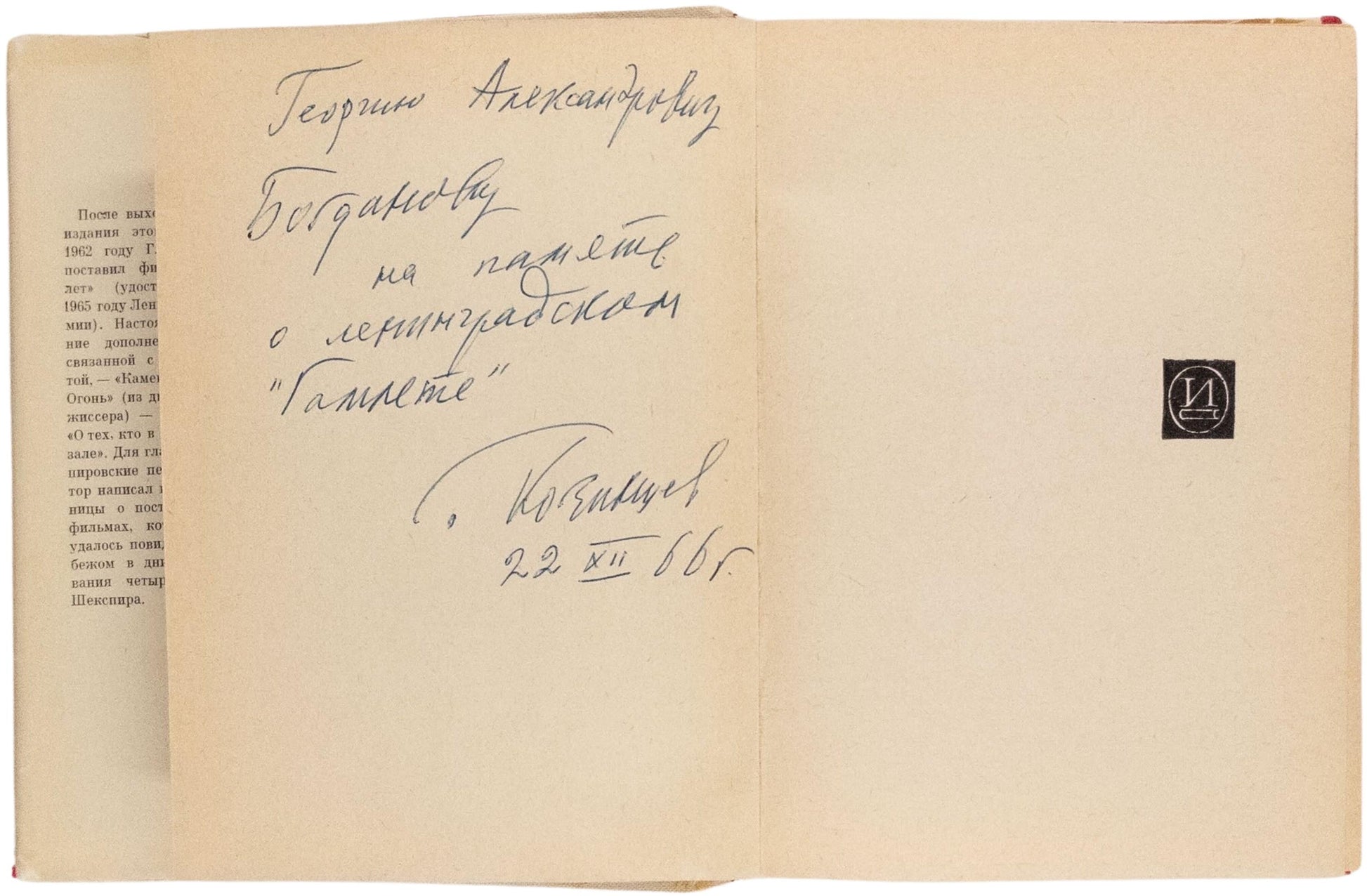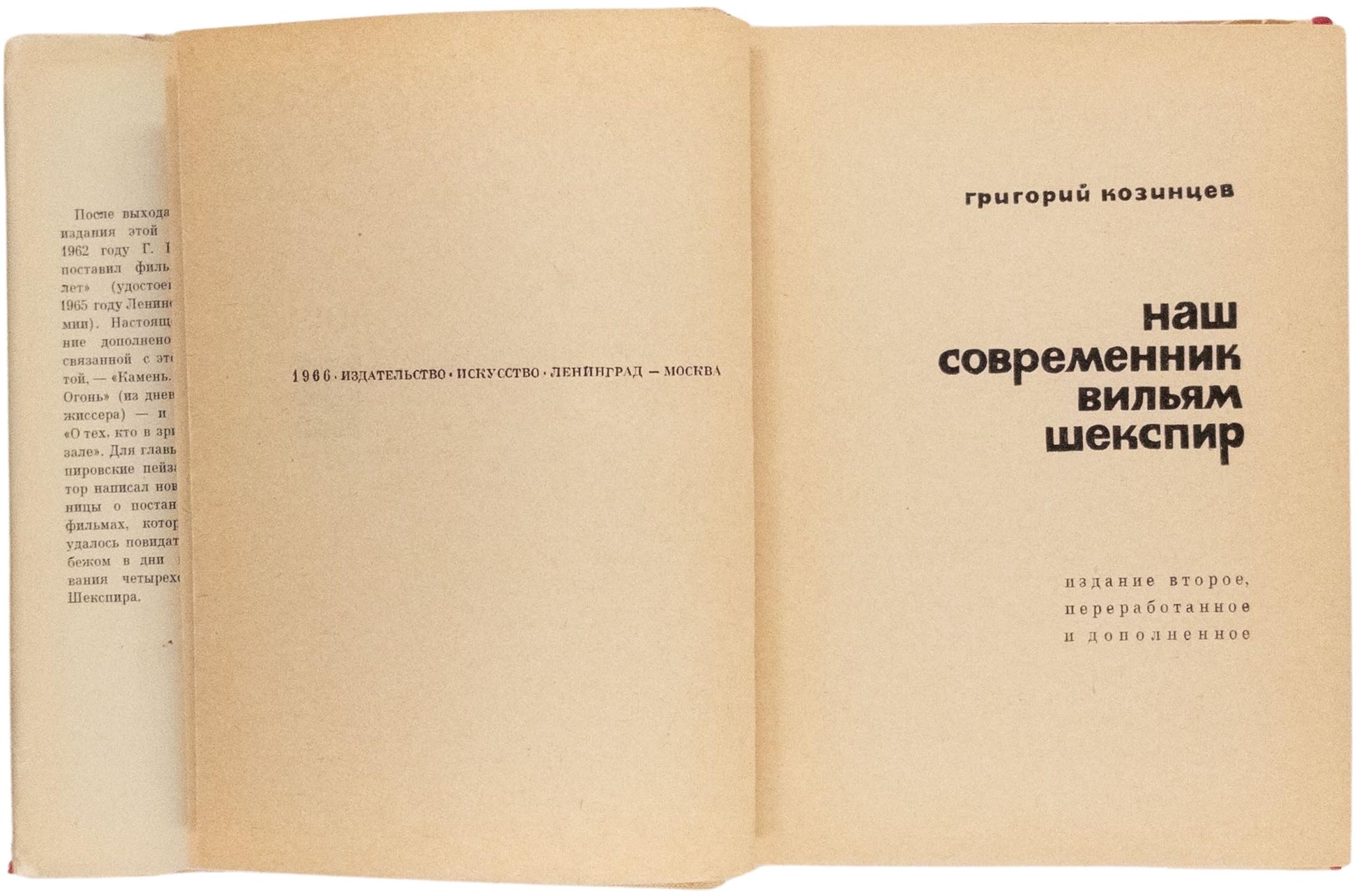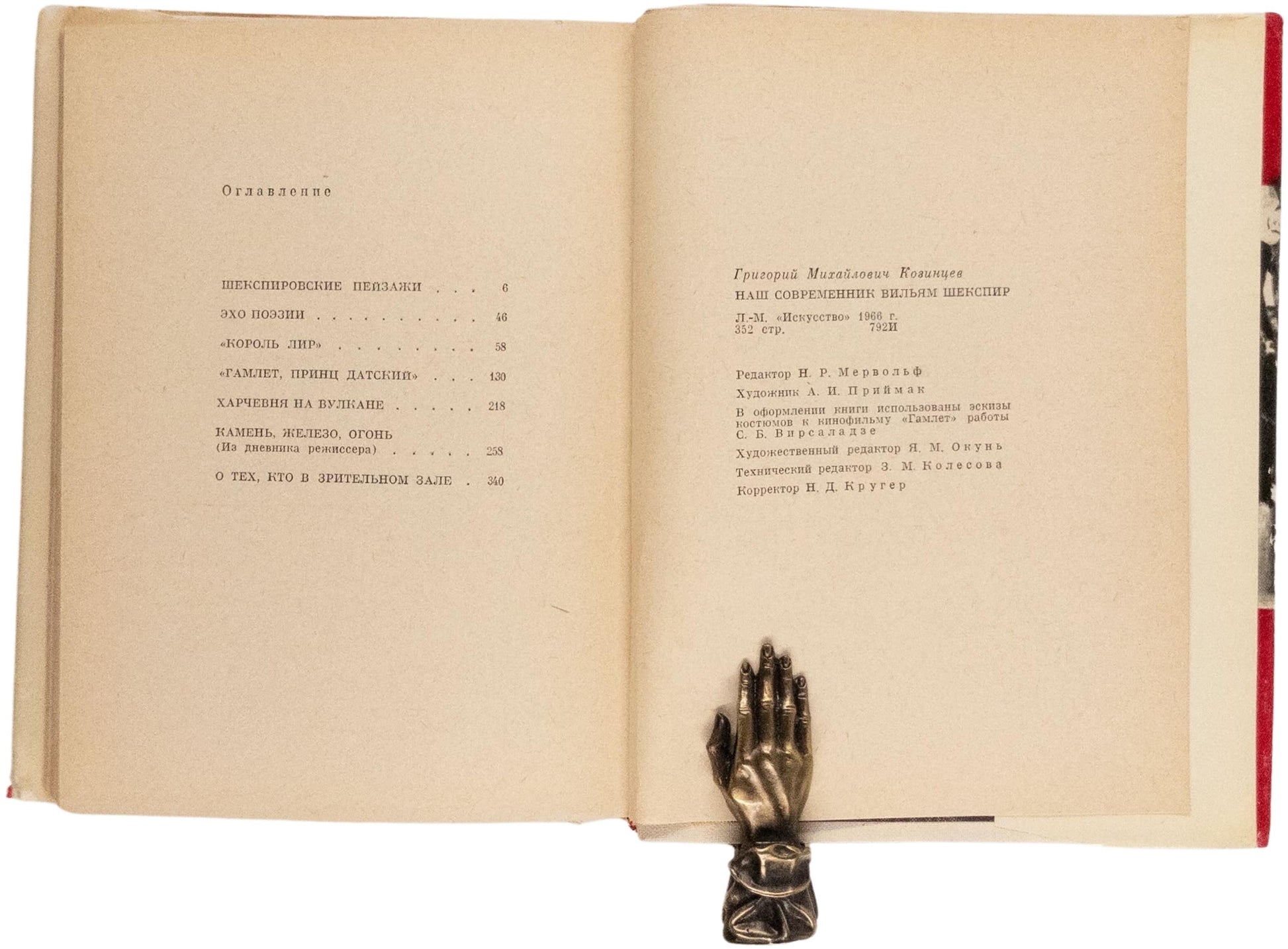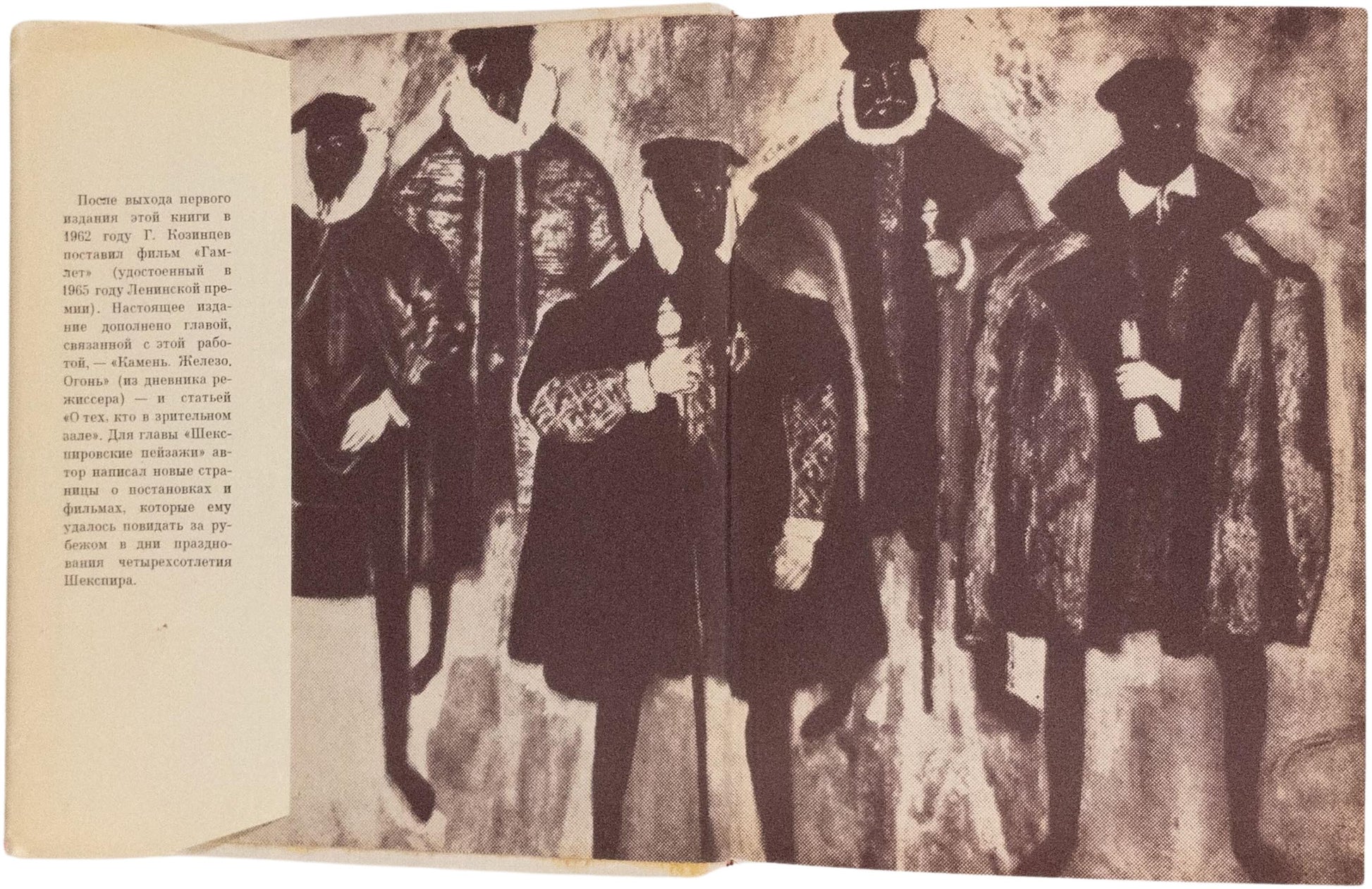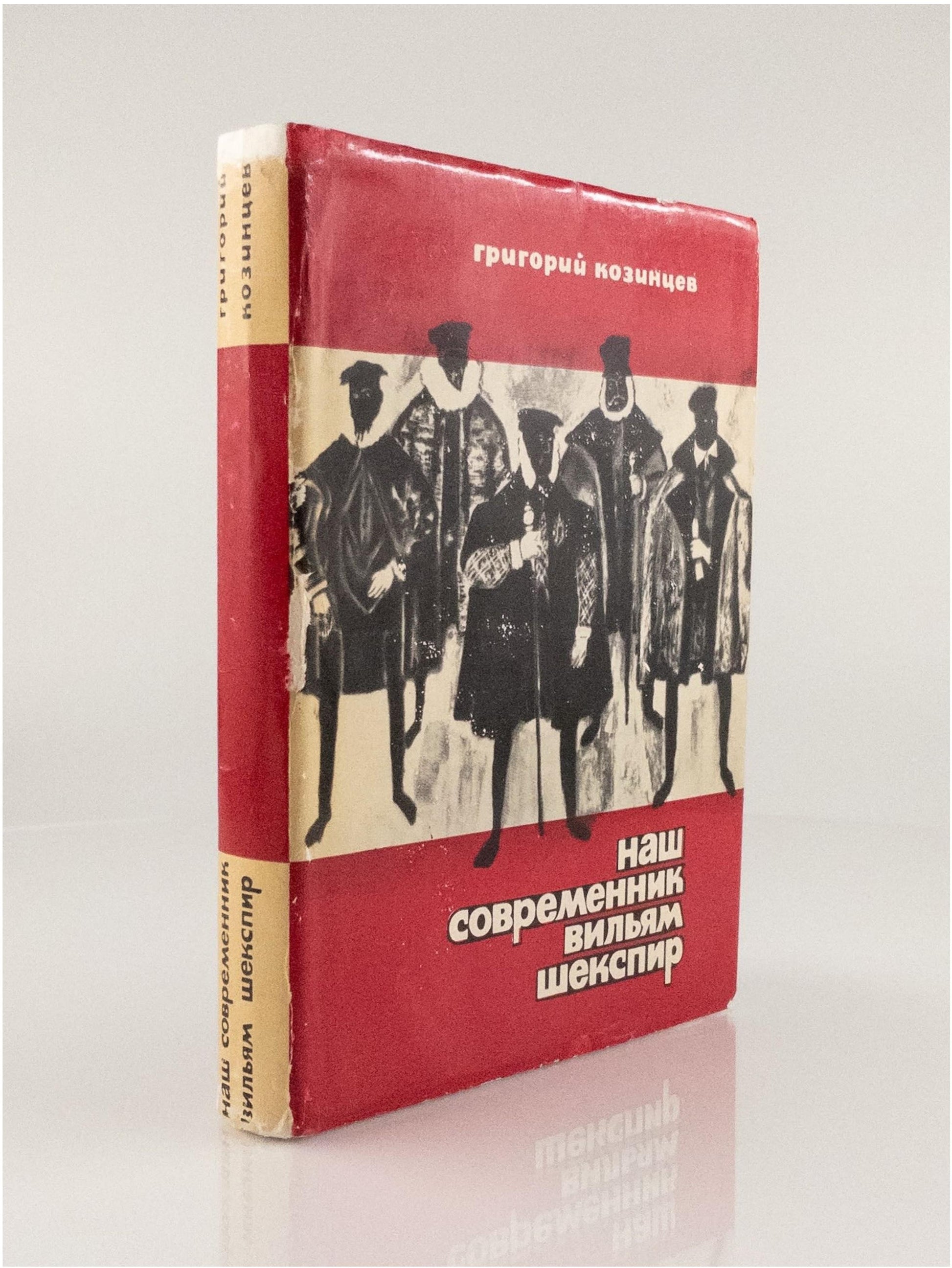Kozintsev, Grigorii
Our Contemporary William Shakespeare. Signed and inscribed copy.
Our Contemporary William Shakespeare. Signed and inscribed copy.
Couldn't load pickup availability
Kozintsev, Grigorii [Our Contemporary William Shakespeare]. Nash Sovremennik Vil’yam Shekspir.
Dust jacket and endpapers by S. Virsaladze.
Leningrad-Moskva, Iskusstvo, 1966.
12mo, 348, [4] pp.
In publisher’s hardcover and dust jacket. Signed and inscribed copy.
In good condition, dust jacket repaired, small stains to hardcover.
Singed and inscribed by the author, probably, to the artist Georgiy Bogdanov (1913–?): 'Georgiiu Aleksandrovichu / Bogdanovu / na pamiat / o leningradskom «Gamlete» / G. Kozintcev / 22 XII 66 g.' [To Georgii Aleksandrovich Bogdanov in memory of the Leningrad “Hamlet”. 22 XII 66].
One of 25 000 copies printed. Second edition.
Grigorii Kozintsev (1905-1973) — often hailed as 'the great Russian director of Shakespearean cinema' — began his artistic journey studying under Alexandra Exter in Kiev and Natan Al’tman in Petrograd.
Kozintsev envisioned a pantomime adaptation of 'Hamlet' as early as the 1920s at his avant-garde theater workshop, The Factory of the Eccentric Actor (FEKS). In 1954, he brought 'Hamlet' to the stage, utilizing Boris Pasternak's translation and Dmitri Shostakovich's music at the Pushkin Theatre in Leningrad. Subsequently, he realized his vision in a film adaptation in 1964, garnering numerous awards, including the Special Prize at the International Film Festival in Venice.
This book intimately intertwines with Kozintsev's work on both the play and the film. The second edition intricately details the production process of 'Hamlet', including insights from Kozintsev’s diary entries and quotes from Boris Pasternak, Innokenty Smoktunovsky (who portrayed Prince Hamlet), and Dmitry Shostakovich. Featuring movie costume sketches by Simon (Soliko) Virsaladze (1909–1989) — renowned for his designs in ballet, film, and opera, and serving as the chief designer of the Bolshoi Ballet in Moscow from 1964 until his passing — the book boasts a unique aesthetic.
In 1967 the book was translated into Englished and published under the title 'Shakespeare: Time and Conscience'.







